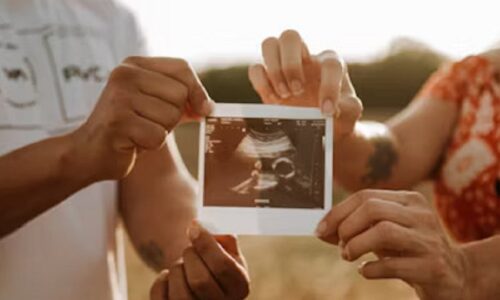
Why is my Stomach Bigger After Gallbladder Surgery
Gallbladder surgery, also known as cholecystectomy, is a common procedure performed to address various gallbladder-related issues, such as gallstones or inflammation. While the surgery is generally considered safe and effective, some individuals may notice changes in their stomach size postoperatively. In this article, we’ll explore the reasons behind the apparent increase in stomach size after gallbladder surgery and provide insights into the factors contributing to this phenomenon.
The Gallbladder’s Role
To comprehend the changes following gallbladder surgery, it’s essential to first understand the gallbladder’s role in digestion. The gallbladder is a small organ that stores bile produced by the liver. Bile plays a crucial role in digesting fats by emulsifying them into smaller particles, making it easier for enzymes to break them down. During a meal, the gallbladder releases bile into the small intestine to aid in the digestion and absorption of fats.
Effects of Gallbladder Removal
In a cholecystectomy, the gallbladder is removed, disrupting the normal flow of bile. Without the gallbladder, bile is continuously released from the liver into the small intestine. While the body can adapt to this change, it can lead to alterations in the digestion and absorption of fats, potentially causing changes in stomach size and overall digestive processes.
Bile Flow and Digestive Changes
After gallbladder surgery, the constant flow of bile can impact the digestion of fats. Some individuals may experience difficulty in processing larger amounts of fat, leading to changes in bowel habits and, in some cases, an increase in stomach size. This is particularly evident after meals rich in fats, as the body adjusts to the absence of the gallbladder’s storage and regulated release of bile.
Postoperative Diet and Stomach Size
After gallbladder surgery, food decisions can have a big impact on stomach size. People are frequently told to switch to a low-fat diet in order to facilitate digestion and reduce pain. But other people could find it difficult to follow these dietary guidelines, which could cause them to eat more fatty foods. Bloating and an inflated stomach look may be the result of the body’s inability to properly handle and digest these lipids.
Metabolic Changes
Gallbladder removal can also affect the body’s metabolic processes. The altered bile flow and digestion may impact the absorption of essential nutrients, including fats and fat-soluble vitamins. This can lead to changes in body composition, potentially causing weight fluctuations and alterations in the distribution of body fat. The metabolic changes post cholecystectomy can contribute to changes in stomach size and overall body shape.
Gastrointestinal Motility
The gastrointestinal system’s motility may be affected by gallbladder removal. of order to move food and digestive fluids through the intestines, the muscles of the digestive system must contract and relax in unison. Reduced transit times brought on by motility changes might make you feel bloated and full. The sensation of an enormous stomach may be exacerbated by these symptoms?
Inflammation and Scar Tissue
The surgical procedure itself can lead to inflammation and the formation of scar tissue in the abdominal area. While the body typically heals from surgery over time, the presence of scar tissue can contribute to changes in tissue elasticity and abdominal wall dynamics. This, in turn, may affect the outward appearance of the stomach, causing it to appear larger than before the surgery.
Individual Variations and Pre-existing Conditions
It’s important to note that individual responses to gallbladder surgery can vary. Factors such as pre-existing medical conditions, overall health, and lifestyle choices can influence how the body adapts to the absence of the gallbladder. Some individuals may experience minimal changes in stomach size, while others may notice more pronounced alterations.
Management and Coping Strategies
If you’ve undergone gallbladder surgery and are concerned about changes in stomach size, there are several strategies to manage and cope with these effects:
- Adopt a Low-Fat Diet: Following a diet low in saturated and trans fats can help ease the digestion of fats and minimize bloating.
- Eat Smaller, More Frequent Meals: Instead of large meals, opt for smaller, more frequent meals throughout the day to facilitate better digestion.
- Stay Hydrated: Digestion requires consuming a sufficient amount of water. It can help soften stools and promote regular bowel movements.
- Exercise Regularly: Physical activity can aid in digestion and help regulate bowel movements. Incorporate regular exercise into your routine to promote overall digestive health.
- Consult with a Healthcare Professional: If you experience persistent or severe symptoms, it’s crucial to consult with your healthcare provider. Based on your particular circumstances, they can offer tailored counsel.
Conclusion
After gallbladder surgery, stomach size changes are a complex phenomenon that are impacted by a number of factors, such as individual differences, dietary choices, metabolic changes, and changed bile flow. Some people can see a noticeable rise in stomach size, while others might only see slight variations. Individuals can improve their general well-being and digestive health by managing and adjusting to these postoperative effects by adopting suitable lifestyle adjustments and understanding the underlying processes. It is crucial to speak with a healthcare provider if worries continue in order to guarantee that the right advice and assistance are provided.
Janvi Dhiman
Janvi Dhiman holds a Master's degree in Biotechnology and has a background in both undergraduate and postgraduate studies from Amity University, Noida. Her passion lies in making meaningful contributions to the healthcare and research sectors. Currently, she is a valued member of our team, serving as a Research Analyst and a medical content writer at DiseaseInfoHub.




